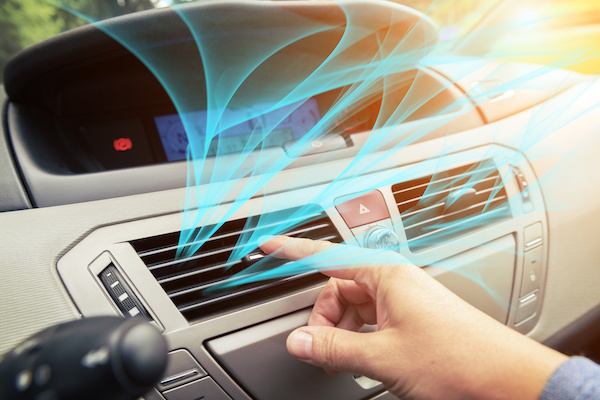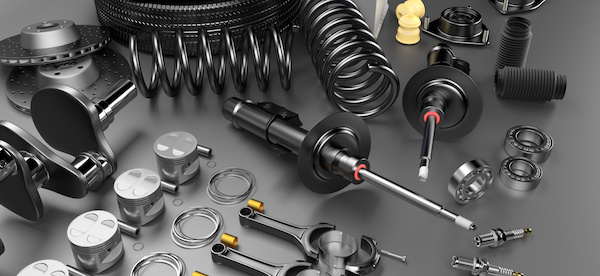Posted on 6/29/2023

Summer calls for road trips and fun outdoor activities. However, if your car's air conditioning is not up to the task, you may be overwhelmed on a hot day. Luckily, there are several ways you can keep cool while in your car this summer. Continue reading to explore the ABCs of your car's AC system and how you can stay cool in the summer heat. How to Take Care of Your Car's AC To stay cool this summer, your car's AC must run smoothly. Here are three ways to ensure you remain cool and comfortable: Replace Air Filters Your car needs to breathe, and when your air filters are dirty or clogged, the obstruction can hinder airflow, leading to reduced cooling performance. Check your air filters regularly and clean or replace them before hitting the road. Inspect Belts & Hoses When the belts and hoses in your car's AC system wear out or develop cracks, they can cause leaks or even complete system failure. Ensure you monitor their performance and conduct regular ... read more
Posted on 5/31/2023

Planning a road trip can be thrilling, but it can also be overwhelming. With so many things to consider, it's easy to forget something important. Fortunately, there are many apps available that can help make your road trip successful. Here are some of the best and most used apps for a successful road trip: GasBuddy GasBuddy is a great app for finding the cheapest gas prices along your route. The app uses your location to show you the nearest gas stations and their current prices, helping you save money on fuel. Waze Waze is a community-driven navigation app that offers real-time traffic updates and alternative routes. It also provides alerts for accidents, police sightings, and other hazards on the road. With Waze, you can avoid traffic and arrive at your destination faster. Roadtrippers Roadtrippers is a comprehensive trip-planning app that helps you discover interesting place ... read more
Posted on 4/30/2023
.jpeg)
Coolant, also known as antifreeze, plays a vital role in regulating your car's temperature. Without it, your engine can overheat and cause severe damage. A coolant flush is a maintenance procedure that involves removing old coolant from the system and replacing it with new fluid. But is it necessary? Let's take a closer look. Why are coolant flushes important? Over time, coolant can become contaminated with debris and lose its effectiveness. A coolant flush helps to remove built-up rust, scale, and other debris that can clog your cooling system. Additionally, a coolant flush helps to maintain the proper pH balance in your engine, which can prevent corrosion and damage to vital components. How to tell if you need a coolant flush? If your engine is running too hot or you notice a sweet, pungent smell, it may be a sign that your coolant needs to be changed. Other signs that you may need a coolant flush include the following: Rust or sediment buildup in the coolant Low coola ... read more
Posted on 3/30/2023

With the increasing demand for eco-friendly vehicles, hybrids have become popular for drivers who want to reduce their carbon footprint. Hybrid vehicles combine traditional gasoline-powered engines with electric motors and batteries to create an efficient and environmentally-friendly mode of transportation. However, like any vehicle, hybrid types have their pros and cons. Here are some of the advantages and disadvantages of owning a hybrid vehicle. Pros of Hybrid Vehicles Fuel efficiency: Hybrid cars have a significantly higher fuel efficiency than traditional gasoline-powered vehicles. This means that you can save money on gas over time with your investment. Environmental benefits: Hybrids produce fewer emissions than gasoline-powered cars, making them more environmentally friendly. Simpler maintenance: Hybrid vehicles have fewer moving parts than traditional cars, requiring less maintenance. Tax incentives ... read more
Posted on 2/27/2023

Aftermarket additions refer to modifications made to a vehicle after its original manufacturing. These additions are usually made to improve the vehicle’s performance, appearance, and overall driving experience. Some of the most common aftermarket additions that drivers invest in are: Performance upgrades: Performance upgrades are designed to enhance a vehicle’s power and speed. This can include modifications to the engine, suspension, and exhaust system. A performance upgrade can include things like upgrading to high-performance spark plugs, air filters, and camshafts. Wheels and tires: Upgrading the wheels and tires on a vehicle can not only improve its appearance, but also its performance. Larger and wider tires can provide better traction and handling, while custom wheels can give the vehicle a unique and stylish look. Suspension: Upgrading the suspension system on a vehicle can improve its handling and ride quality. Some popular suspension upgrades include adding pe ... read more